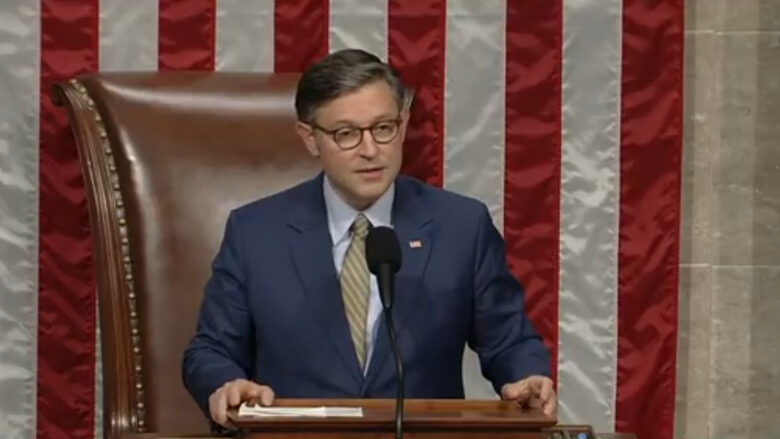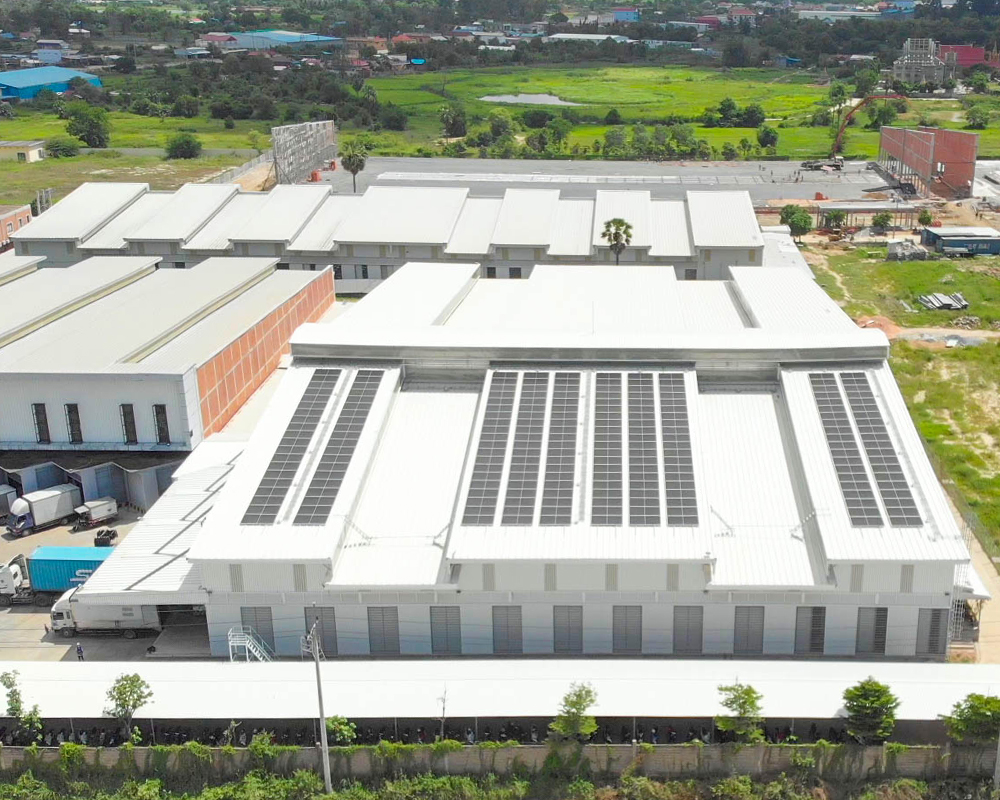
House Passes ‘Big Beautiful Bill’ With Key Provisions for Construction
[ad_1]

Republicans in the U.S. House of Representatives passed their tax and spending bill, the One Big Beautiful Bill Act, by a 215-214 vote during an overnight session May 22. The package includes tax deductions benefiting many construction contractors, along with a mix of provisions that are likely to help some types of projects and hamper others.
“Today, the House has passed generational, nation-shaping legislation,” House Speaker Mike Johnson (R-La.) said in a statement following the vote.
The bill, which is more than 1,100 pages, is estimated to increase deficits by $2.3 trillion over 10 years, according to the nonpartisan Congressional Budget Office.
A key piece of the legislation for contractors is the extension of tax deductions from the 2017 Tax Cuts and Jobs Act which were otherwise due to expire later this year. The 199A deduction for pass-through businesses—which includes for the majority of construction firms, according to the Associated General Contractors of America (AGC)—would be made permanent and raised from 20% to 23%.
“This bill includes important tax relief for contractors,” the Associated Builders and Contractors wrote in a letter to lawmakers urging them to support the bill. “The scheduled expiration of many of these policies in 2025 would have grave effects, not only for our contractor members, but for the construction market more broadly.”
The package also would make permanent an increased alternative minimum tax exemption, and increase the estate tax exemption from $5 million to $15 million, both of which were sought by some in the construction industry.
Additionally, the bill would add a new tax cut for many workers, eliminating taxes on overtime pay through 2028.
Workforce Programs
The package includes provisions benefiting workers training to join the construction industry. One expands the Pell grants student aid program to include those enrolled in workforce training programs, rather than just full-time college students. AGC has “long advocated making those funds available for students pursuing the kind of short term credentialing programs that are a key pathway into the construction industry,” said Brian Turmail, vice president of public affairs & workforce at AGC, via email.
The bill would also expand eligibility for so-called 529 savings accounts to cover skilled trade training programs, allowing those pursuing a career in construction to use a tax-deferred savings account to pay for their education-related expenses.
Energy and Environment
Lawmakers used the bill to cut back many Biden administration priorities around the environment and to boost some of President Donald Trump’s goals around energy.
An expedited permitting provision added under the Natural Gas Act would allow developers to pay a fee—1% of the project’s estimated cost or $10 million, whichever is less—to enter a consolidated permitting process for qualifying projects. Agencies would have one year to complete their reviews in most cases, and any applications still pending past the deadline would automatically be “deemed to be approved in perpetuity.”
The package would also create a “de-risking compensation program” for fossil fuel and nuclear energy projects. The program would compensate owners in the event that federal action delays or forces the cancellation of under-construction projects. Owners would need to pay an enrollment fee of 5% of the estimated cost plus 1.5% annual premiums to participate in the program.
Tax credits established by 2022’s Inflation Reduction Act for wind, solar and battery storage energy projects would be phased out under the bill. Lawmakers had initially set 2029 as the end date, but some Republicans pushed to end the program earlier, pushing for 2027. Under pressure from Trump to pass the bill, they settled on 2028 to end the tax credits.
The cuts drew criticism from renewable energy sector groups, who said manufacturing plants would close and people would lose jobs as a result.
“Energy and manufacturing tax credits are driving deployment and investment in a wide range of zero-carbon energy sources including advanced geothermal, nuclear power, and renewables like wind and solar,” said Nathaniel Keohane, president of the Center for Climate and Energy Solutions, in a statement. “Gutting those credits will raise prices for businesses and households and choke off electricity supply just at the moment when energy demand is booming.”
The package adds new annual registration fees of $250 for electric vehicles and $100 for hybrid vehicles. Funds collected from the fees will go to the Highway Trust Fund.
The bill also directs officials to rescind a Bureau of Land Management decision on the supplemental environmental review for the proposed $600-million Ambler Road project in Alaska, which would open up access for mining. The government denied permission for the project under the Biden administration, but the bill would advance the plan and reinstate a preferred alternative selected under the first Trump administration.
Passing the Package
House Republicans passed their reconciliation package without support from a single Democrat. Only Republican Reps. Thomas Massie (Ky.) and Warren Davidson (Ohio) voted against the bill, and a few others declined to vote or simply answered “present.” Massie and Davidson both shared concerns about the level of spending in the bill and the amounts it is poised to increase near-term deficits, with savings not projected for several years.
“If we were serious, we’d be cutting spending now, instead of promising to cut spending years from now,” Massie wrote on social media.
The legislation next goes to the Senate, where lawmakers will need only a simple majority, rather than three-fifths, to pass it under the reconciliation process. But the bill continues to face opposition from Democrats over cuts to health care and food benefit programs, and some Republicans may seek additional changes before pledging their support.
President Donald Trump celebrated the bill’s passage and called on lawmakers in the Senate to send the legislation to his desk “AS SOON AS POSSIBLE” in a post on social media. Treasury Secretary Scott Bessent told reporters last month that the administration aims to have the bill passed by July 4.
[ad_2]
Source link
Post a Comment
You must be logged in to post a comment.






